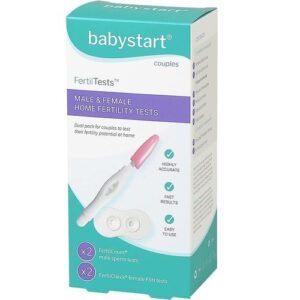So what exactly is Fertility and Infertility?
Fertility is simply the ability to give life, to conceive through sexual activity and give birth to a child. Infertility is when a couple has tried for a long time to have a child but they can’t. You are usually infertile if you try for about a year and can’t get pregnant.
Infertility is a condition that affects both men and women equally. It can be caused by various factors, including hormonal imbalances, physical issues with reproductive organs, age-related factors, genetic disorders, or certain medical conditions that interfere with fertility.
For women, infertility can be attributed to issues such as ovulation disorders, blocked fallopian tubes, endometriosis, or polycystic ovary syndrome (PCOS). These conditions can affect the release of eggs or the ability of the fertilized egg to implant in the uterus.
In men, infertility can be caused by problems with sperm production, sperm motility, or the presence of structural abnormalities in the reproductive organs. Factors such as low sperm count, poor sperm quality, or blockages in the reproductive tract can contribute to male infertility.
Infertility can be a distressing and emotionally challenging experience for couples who are trying to conceive. The inability to have a child naturally can lead to feelings of frustration, disappointment, and even guilt. It is important for couples to seek support, both from healthcare professionals and from each other, as they navigate the journey of infertility.
Fortunately, there are various medical interventions and assisted reproductive technologies available to help couples overcome infertility. These include fertility medications, surgical interventions, intrauterine insemination (IUI), and in vitro fertilization (IVF), among others. These treatments offer hope to couples who are facing challenges in conceiving and can significantly increase the chances of achieving a successful pregnancy.
It is crucial for individuals and couples to be aware of their fertility and reproductive health. Regular check-ups, discussions with healthcare providers, and maintaining a healthy lifestyle are important steps in optimizing fertility. Seeking early intervention and professional guidance can also help identify and address any potential fertility issues before they become more complex.
Ultimately, fertility and infertility are natural aspects of human reproduction, and the journey towards parenthood may involve different pathways for each individual or couple. With advancements in medical science and a supportive network, many couples are able to overcome infertility and realize their dream of becoming parents.
Understanding Fertility Tests
A fertility test is used to see if there’s a problem with the fertility level of man or the woman. It’s not always an issue with the woman when it comes to infertility, it can be a problem with the male. Almost half of all fertility issues can be traced to the man. Having the male partner tested can help to correct any issues if they are caught early enough, so testing is critical.
How Long to Wait Before You Check Fertility
Experts say you should wait different periods when it comes to checking your fertility with a medical profession.
• If you have been trying to have a child for over a year and are under the age of 35, they you should get checked.
• If your 35 or older but under the age of 40, you should check within 6 months to see if there are problems.
• If you are over the age of 40 you need to get checked at around 3 months.
Testing Fertility with a Medical Professional
You may be asked several questions when you go to a medical professional to enquire about your fertility issues.
• The history of any medications that you’re taking or took in the past
• Any illnesses or surgeries that you have had
• You may be asked about habits such as drinking, smoking, drug use and so on
• You may be asked about how long you have tried to conceive
• You may be asked about the timing of your intercourse such as the if you’re having sex at ovulation
• There could be questions about your sexual history asked of you
If you want to answer these and other questions it’s often helpful to have the results of home pregnancy or fertility tests with you to assist the doctor.
Testing for Fertility at Home
Home fertility tests can address many of the concerns you have about your fertility problems. There are both male and female fertility tests that you can take.
Some of the fertility tests available from Zoom Baby include:
Male Fertility Test – babystart FertilCount Male Fertility test
The babystart FertilCount Male Fertility test is a rapid diagnostic test of sperm concentration in semen. This male fertility test gives an accurate result and it’s easy as well as quick to use.
Male and Female Fertility Test – FertilCheck Plus
This is a combined male and female test that looks at the FSH or follicle stimulating hormone of the female and the sperm numbers as well as the sperm concentration in the man. If there’s an increase in the FSH. This could indicate infertility. If the female and the male test are positive then you should seek medical advice about what to do next.
Female Fertility Test – Zoom Baby Female Fertility Test Kit
These types of fertility tests measure the FSH or follicle stimulating hormone of the female. Like the other tests a medical doctor should be consulted if the FSH is high.
In conclusion, home fertility tests offer a convenient and accessible option for individuals concerned about their fertility. Zoom Baby provides a range of male and female fertility tests. These tests can provide valuable information about sperm concentration, FSH levels, and potential infertility. If the tests indicate a potential issue, seeking medical advice is recommended. Overall, home fertility tests can help individuals better understand their fertility and make informed decisions about their reproductive health.
Photo Credit: “January 2013” (CC BY 2.0) by Phalinn Ooi
This post first appeared in 2013. It was last updated in June 2023.
Zoom Baby is a leading supplier of Pregnancy Tests and Ovulation Test Kits






